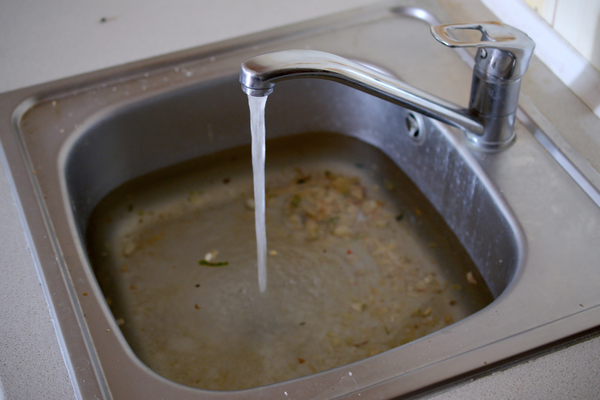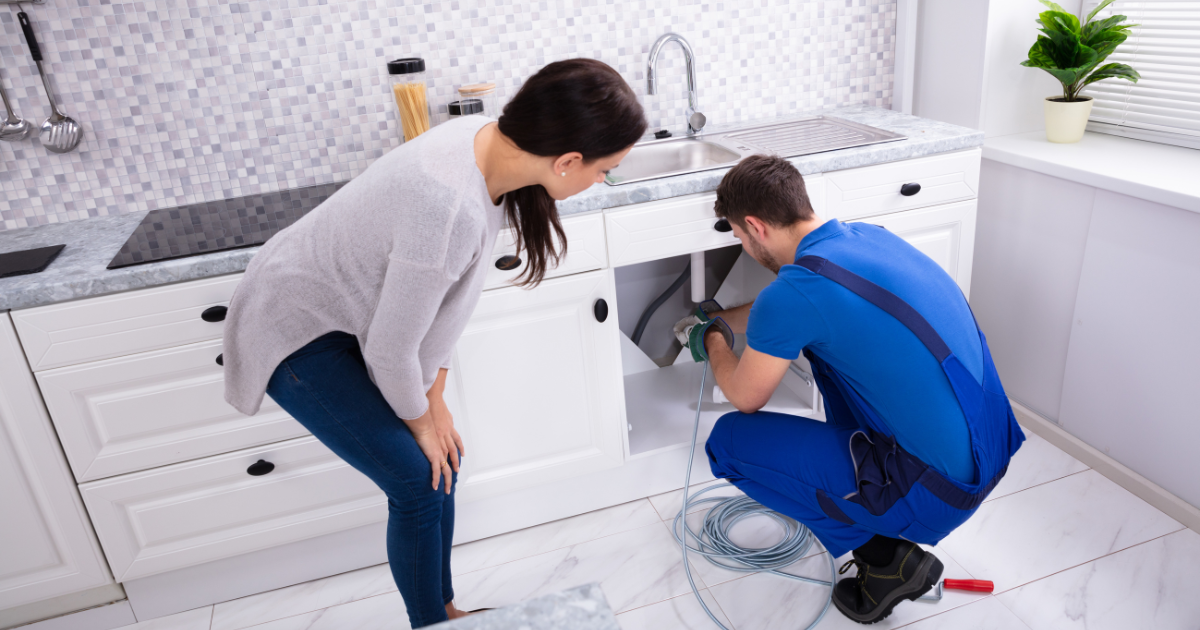Approaches for Unclogging a Blocked Drain Before Consulting Expert Plumbers
Approaches for Unclogging a Blocked Drain Before Consulting Expert Plumbers
Blog Article
How do you feel when it comes to Tips for Dealing with Clogged Drains and Sewer Lines?

Intro
Taking care of an obstructed drain can be an irritating experience, disrupting day-to-day activities and possibly triggering damages to your residential or commercial property. However, prior to reaching out to plumbing professionals, there are actions you can require to resolve the concern on your own. In this guide, we'll discover DIY options and safety nets to deal with a blocked drainpipe effectively.
Determining the Problem
The primary step in resolving an obstructed drainpipe is acknowledging the indicators. Slow drainage, gurgling audios, foul odors rising from drains, or water backing up prevail indications of an obstructed drainpipe. Identifying these signs early can assist stop better complications.
Selecting the Right Pipes Solution
When picking a plumbing service, think about factors such as experience, licensing, and consumer reviews. Choose a reliable plumbing with a record of high quality handiwork and clear rates methods.
Price Considerations
The cost of specialist drain cleaning company can vary depending on the severity of the obstruction and the plumber's rates. Request quotes from multiple suppliers and ask about any kind of additional charges to guarantee openness and prevent shocks.
Security Precautions
When trying do it yourself drain cleaning, focus on safety. Use protective handwear covers and eyeglasses to prevent contact with unsafe chemicals or germs. Never mix different drain cleaning items, as this can produce dangerous fumes.
Situation Researches
Real-life examples illustrate the performance of DIY options and the significance of prompt professional treatment in dealing with drainpipe blockages.
Typical Reasons For Obstructed Drains
Recognizing the factors that add to drain clogs is essential for efficient resolution. Typical offenders consist of hair, soap residue, grease, food particles, and international things like sanitary items or paper towels. Tree origins getting into below ground pipelines can additionally cause significant obstructions.
Do it yourself Solutions
For small clogs, numerous do it yourself options can be efficient. Pouring boiling water down the drainpipe can aid liquify grease and particles. Sodium bicarbonate and vinegar or a combination of salt and baking soda can act as natural cleaners. Utilizing a plunger or pipes serpent to remove blockages is another alternative.
Tools and Tools
Having the right devices accessible can make DIY drain cleaning up a lot more efficient. A plunger is a functional tool for clearing obstructions in sinks, commodes, and showers. A pipes serpent or auger can reach deeper blockages, while drain cleansing chemicals can be utilized meticulously for persistent clogs.
Preventive Measures
To avoid future clogs, adopting safety nets is crucial. Mount drain guards or strainers to catch hair and particles before they get in the pipelines. Consistently flush drains pipes with hot water to liquify grease buildup, and prevent disposing of oil or strong waste down the tubes.
When to Call a Specialist
While do it yourself options can fix small blockages, specific indicators show the demand for professional assistance. Consistent blockages, foul odors regardless of cleaning up initiatives, or multiple drains backing up at the same time are red flags that call for experienced treatment.
Conclusion
By adhering to the pointers laid out in this guide, you can successfully deal with obstructed drains pipes and prevent future plumbing problems. Whether opting for DIY services or looking for professional aid, punctual activity is key to maintaining a healthy and balanced pipes system and maintaining the integrity of your home.
How to Clear a Clogged Drain Yourself (And When to Call In the Professionals)
What Can Clog a Drain
Dirt Skin flakes Hair Grease Soap scum Food Offset pipes Tree roots Small objects Mineral buildup DIY Tricks to Unclog a Drain
You can fix this! Once you have identified the source of the clog (or have a vague idea), you can try one or a combination of these fixes in order to clear your plumbing.
Wire Hanger or Snake
Untangle and clear out hair from a drainpipe with a homemade snake. Use a straightened-out wire hanger with a 90-degree angle hook to locate the clog and drag out any unwanted material.
Remember not to push the clog further down to where the wire hanger cannot reach! If you need to follow up with a plunger, give it a try. Your efforts might be more successful after it’s been wire-snaked.
If you want to get fancy and don’t have a wire hanger to spare, head to the store and pick up a hand-operated drain snake. You can get one for $10-$30. It may save you the hassle, and provide additional length to reach deep into the clogged pipe.
Plunger
A cup plunger has a suction cup attached to a wooden handle. The rubber creates a seal around the drain, and increases the pressure force of the plunger.
Plunge for 30-second increments to loosen the clog. This may need to be repeated over the course of 15-20 minutes. Once plunged, run the water to flush the remaining material out of the drain.
Remember– never use a plunger if you have used a chemical drain cleaner. These chemicals can splash up from the force of the plunger and cause serious injury or burns.
Boiling Water
Hot water can sometimes break up materials into a flushable amount. Dirt, grease, and soap buildup requires heat in order to unstick from surfaces.
Take your kitchen kettle and heat your water to a boil. Once it reaches a rolling boil, pour it directly down the drain into the blockage. Carefully follow with plunging, if necessary.
Don’t worry if this takes more than one try! It can often take multiple kettles and repeated plunging in order to clear a particularly stubborn clog.
Chemical Drain Cleaner
As a last resort, pick up a bottle of chemical drain cleaner. Drain-cleaning chemicals are potent, and not very good for the environment.
You may need to wear protective eyewear in gloves before handling your bottle of chemical drain cleaner. Follow the instructions printed on the bottle, and flush with water as soon as the instructions allow. Do not follow with plunging.
Baking Soda and Vinegar
As a safer alternative to chemical drain cleaner, baking soda and vinegar can create a chemical reaction that clears tough clogs.
Combine one cup of cleaning vinegar with one cup of boiling water, and set aside. Once you have done this, pour half a cup of baking soda down the drain. Give the baking thirty seconds to settle and cover a large portion of the problem drain.
Following the baking soda, pour down your vinegar and hot water solution. Once the vinegar and baking soda combine, the mixture will bubble and fix. Let this reaction fizzle in the drain for about an hour.
After an hour, follow with a kettle’s worth of hot water. The heat and liquid should flush out any remaining material.
When to Call a Plumber
If your DIY attempts haven’t cleared your clog drain, it’s time to call in a professional. It’s not worth losing access to your kitchen sink or high-traffic bathroom. A clog in a vital area can keep you from the things you’d rather be doing, and derail your routine.
Anytime a clog is causing water to spread is a time to call in a plumbing service. What starts out as a little bit of water can quickly grow into serious, expensive water damage.
Additionally, a serious clog can result in burst pipes or serious leaks. Make sure you know when to take it seriously!
https://myguysnow.com/how-to-clear-a-clogged-drain-yourself-and-when-to-call-in-the-professionals/

Do you really like reading up on Tips for Dealing with Clogged Drains and Sewer Lines? Write a comment down the page. We will be glad to know your insights about this entry. We hope that you visit us again in the near future. Sharing is good. You won't know, you may be doing someone a favor. We treasure your readership.
Book Today Report this page